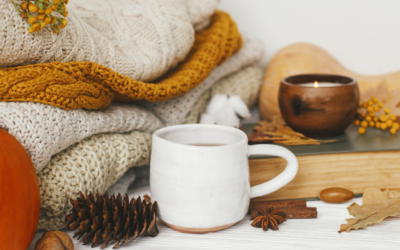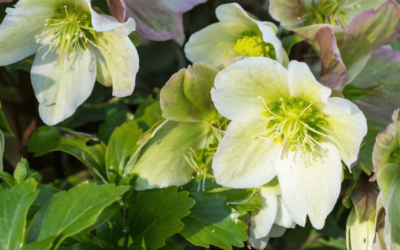Āyurveda – Know your Doṣa
What character traits match your personality and physical appearance?
In Āyurveda medicine different physical and personality traits are classified into three doṣa, linked with five elements.
Vāta (air and space)
Pitta (fire and water)
Kapha (water and earth).
We are all born with all three doṣa but we have a unique balance of these traits. In general, we have one dominant trait and a secondary trait that we inherited from our parents, our Prakṛti. However, our lifestyle can influence the balance of the three doṣa, our Vikṛti is how the doṣa are balanced now.
Prakṛti– balance of Vāta, Pitta and Kapha we’re born with
Vikṛti – how our lifestyle influences the balance of Vāta, Pitta and Kapha.
In order to regain and maintain optimum health, the aim is to rebalance our Vikṛti as close as possible to our Prakṛti This can be achieved by lifestyle changes – predominantly through what we eat, what activity we do and how we sleep.
Put very simply – some foods and activities can increase or aggravate the doṣa and others will decrease or calm the doṣa. There are also seasonal changes and diurnal changes where different doṣa dominate, this also can also have an aggravating or calming effect on our Vikṛti.
What is your dominant and secondary doṣa?
The easiest way to assess your doṣa is by looking at your physical traits as some of these aren’t affected by lifestyle. You can check these in a doṣa assessment chart such as https://www.ayurveda.com/pdf/constitution.pdf
A simple questionnaire will not always capture the subtly of your individual balance of doṣa. If you’d like to investigate this further, you might consider consulting a qualified Āyurvedic practitioner.

Personality traits
If you know your constitution type it can be easier to accept certain personality traits you might have. We can play to our strengths and be aware of potential pitfalls.
I’ve listed a few traits for each of the constitution types below. I’ve tried to include predominant traits to give you a flavour of the three Doṣa. I’ve also given a few suggestions of lifestyle tips to consider to help you to re-balance or calm each Doṣa.

Previous items
Pace of Life
Do you change your pace?Can you adjust your pace depending on what you're doing? Life has got busier, there’s so much pressure on us to do even more and be a certain way. It’s overwhelming and the pace just keeps building. It's creeping up on us slowly. I think of...
Self-compassion or Self-criticism
Self-compassion or Self-criticismDo you give yourself a hard time? Do you feel guilty when you take time out for yourself? Is it time you gave yourself a break? But how can we give ourselves a break? We all know self-criticism is unhelpful but it can be a hard habit...
Healthy Habits – Daydreaming
Healthy Habits - DaydreamingDo you spend time daydreaming? If so, is it a helpful habit? Do you let your mind wander to irrelevant things or do unhelpful thoughts take over when you're not focusing on a specific task?eDaydreaming can be a really healthy habit as a way...

Vāta:-
When in balance – creative, artistic, lively, fun, high energy, full of joy and enthusiasm, impulsive and spontaneous, good imagination, day-dreamer, adaptable, quick to grasp ideas superficially and good short-term memory.
When aggravated – anxious, overexert, racing / disjointed thoughts, become easily distracted, nervous, hyperactive, flighty-movement.
Other traits – slender, tall, cold hands feet, dry skin, speak quickly, irregular digestion, sleep, moods.
Health tips to calm Vāta – eat at regular times, don’t skip breakfast, choose warm, cooked foods. Avoid doing too many different activities. Choose slow movements with a consistent rhythm – yoga, walking and swimming. Try to have a routine bedtime, prioritise time to relax time, e.g read but avoid thrillers if feeling anxious.
Pitta:-
When in balance – sharp-minded, good concentration, orderly, driven, assertive, self-confident, competitive, quick-witted, good public speaker, good management and leadership skills, strong will power.
When aggravated – impatient, demanding, anger easily, self-critical, overbearing, jealous, controlling/fixed mindset, perfectionist.
Other traits – sharp bright eyes, moderate build, heat causes fatigue, sensitivity to spicy foods, strong appetite, little but sound sleep. Sharp, penetrating voice, purposeful movement.
Health tips to calm pitta – avoid overworking and overheating, choose green veg, water fruit, avoid alcohol. Cultivate patience and compassion for yourself. High-intensity exercise can help pitta let off steam, but not in the evening. Avoid heating activity or emotional discussions before bed.


Kapha:
When in balance – relaxed, slow pace, compassionate, non-judgemental nature, nurturing, stable, trustworthy, slow to grasp ideas but when they do understand them deeply, good long-term memory, methodical, self-sufficient, easy-going, natural listener, supportive.
When aggravated – slow to take action, hold grudges / stubborn, prone to depression, lack of self-belief, avoid causing upset.
Other traits – heavier build, soft hair, skin. slow, steady, soft voice, digestion, steady movement, sleep deep and prolonged.
Health tips to calm Kapha – create harmony and peace in your surroundings, avoid cold, damp environments, choose foods that are light, warm, spicy, avoid oily sugary foods. Take regular, consistent exercise and priorities social activities. Avoid over-sleeping, try to get up at the same time every day.
Understanding your doṣa.
By understanding your physical and mental traits you can become more accepting of your tendencies but also think about how you can bring your doṣa back into balance. When you’ve got a grasp of the different traits a lot of the suggestions are common sense, but we are often drawn to activities that aggravate our doṣa, Western lifestyles increase Vāta, and a lot of people would benefit from regular mealtimes, exercise and sleep routines as well as periods of peaceful activity and rest to help calm Vāta.
If you’d like to know more, ask me in a session where we can explore Āyurvedic principles more deeply.




